Trump’s mixed bag of cabinet picks
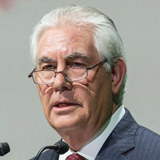
(Forbes)
As President Trump settles down in the Oval Office, many people are still wondering about his cabinet picks and if they’re fit for the job. His cabinet picks come from a wide variety of backgrounds, from career politicians to CEO’s of major companies. All of the cabinet picks must be confirmed by the Senate, but the White House Staff does not need to be confirmed.
The confirmation process first involves a hearing by the committee of senators who oversee that position. Each of the senators on the committee has a chance to ask questions to each appointee. Then, the committee must vote to send the nomination to the full senate or not. If the committee decides not to send it to the full senate, the confirmation is denied. If the pick is sent to the full senate, he or she only needs a simple majority to be confirmed.

Chief Strategist: Steve Bannon
One of the most eye opening appointments Trump made was Steve Bannon. Bannon comes from Breitbart, a far right news site. Bannon has made multiple divisive comments regarding all minority races. Trump’s appointment of Bannon appears to be a poor choice for someone who claimed to want to unite the country during his victory speech. Bannon is one of the most partisan choices Trump could have picked. Partisanship is the last thing America needs after a divisive election.
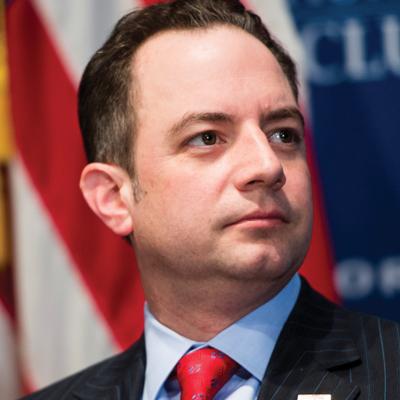
Chief of Staff: Reince Priebus
Former RNC chair Reince Priebus was appointed to the Chief of Staff by Trump. Priebus’s appointment shows a possible willingness to work with those who have already been in the Republican party, as opposed to to Trump’s campaign claims to “drain the swamp.” Bringing in someone with experience to his team is going to help tranquilize the critics that call everyone who Trump has appointed “unqualified.” Another idea expressed by the LA Times is that Priebus represents the bridge between the “outsider” Trump and the GOP establishment.

Secretary of State: Rex Tillerson
On December 13th, Trump announced that former Exxon CEO Rex Tillerson would be his pick for Secretary of State. Tillerson is considered by many, including Forbes, to be both a high risk and a high reward pick. Tillerson developed close ties to Russia in his time with Exxon, and even received the Order of Friendship award from the Russian federation. This award is given to a foreign national who worked to better his or her country’s relationship with Russia. While Tillerson’s close relationship with Russia is concerning, his previous experience dealing with foreign countries for business purposes could help him excel as the Secretary of State.
Attorney General: Jeff Sessions
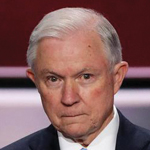
As one of Trump’s first cabinet picks, Alabama Senator Jeff Sessions was appointed as the Attorney General on November 18th. Sessions has faced resistance from many on the left, as he has a history of being against some civil rights. According to the New York Times, Sessions said that the NAACP was “un-American and tried to force civil rights down the throats of Americans “ in 1986. Sessions made multiple racist comments similar to the ones above, but Sessions claims to have turned the corner as he helped ensure the death penalty for a Klansman, which helped lead to the demise of the KKK in Alabama. Hopefully Sessions can bring a higher degree of accountability to the AG position. This comes after outgoing AG Loretta Lynch did a mysterious investigation of the Chicago Police Department in which she said former superintendent Garry Mccarthy refused in interview, but he was never even asked for one.
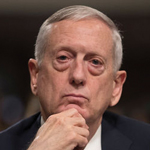
Secretary of Defense: James Mattis
Nicknamed the “Maddog”, James Mattis was named Trump’s Secretary of Defense. Mattis was a four star general in the Marines and left the military in 2013 after serving for 44 years. According to the New York Times, Mattis has the approval of Senator John McCain (R-AZ), who has been one of Donald Trump’s strongest opponents. Eliot Cohen, another strong opponent of Trump is also satisfied with Mattis as the Secretary of Defense, calling him “a man of integrity and experience.” Out of all of Trump’s cabinet picks, there seems to be the most agreement on Mattis. This was clear during the Senate committee hearing after multiple democratic senators told Mattis “I look forward to your confirmation.” On the day Trump was inaugurated, Mattis was confirmed 98-1 by the full senate.
U.S. Ambassador to the United Nations: Nikki Haley
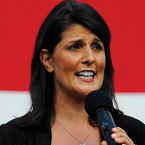
The 116th Governor of South Carolina has become a popular figure in the GOP. President Trump hopes that she will represent the true interests of the GOP to the UN, especially with Israel. After the U.S.’s recent decision not to veto the UN resolution about Israeli settlements, the GOP majority of the United States is feeling misrepresented. Haley is an immigrant who came from from India. Haley and Trump had multiple conflicts during the election, including Trump calling Haley “weak” on illegal immigration. Haley was confirmed by the Senate 96-4.
Secretary of Transportation: Elaine Chao
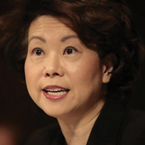
President Trump appointed Senate Majority Leader Mitch McConnell’s wife to be the Transportation Secretary. According to her website, Chao was the first woman of Asian descent to be appointed to a presdent’s cabinet after being in President George W. Bush’s cabinet as the Secretary of Labor. If Trump follows his plan to invest in infrastructure in his first 100 days, Chao will be Trump’s go to. While Chao does not have experience within transportation, she did serve for eight years as the Secretary of Labor, which has given her valuable experience in a cabinet position.
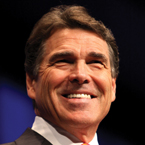
Secretary of Energy: Rick Perry
The former Texas governor was appointed to be the Secretary of Energy. Perry is another eye-opening choice because according to the New York Times, he once wanted to eliminate the department of energy which would greatly decrease the government’s research into alternative energy sources which is a critical part of America’s future. Despite its name, the Department of Energy is actually in charge of nuclear weapon research which is a responsibility that one would think belongs to the Department of Defense. In fact, 60 percent of its funding goes to the development of nuclear weapons. One advantage Perry may have is that running Texas has provided him with valuable experience dealing with the oil tycoons.
